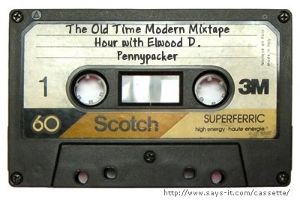Rachel Getting Married
A film about a delightful, multicultural, Indie artiste upper class wedding as directed by Jonathan Demme would instantly seem to have more in common with Demme's Talking Heads concert film, Stop Making Sense, than Demme's most notable piece of work, The Silence of the Lambs. And yet, thanks to drilling, brutal dialogue written by Jenny Lumet and some stunning performances centered around a marauding substance abuse addict, Rachel Getting Married at times conjures up the emotional horror of that later film, even if the character of Kym is a far cry from Hannibal Lechter.
Kym is detestation. Her reckless, irresponsible, and extreme behavior goes beyond that of the spoiled, privileged child and into realms and actions that few people rarely have to encounter. In modern, stable Americana, this is as bad as it gets. In spite of the tragedy, Kym's family perseveres. Her father, as portrayed with warmth and frustration by Bill Irwin, is a true patriarch but one whose family is held up by Popsicle sticks. Her mother, distant and cold, is physically removed from her family by divorce and by her own choice, and she is played with grace and ease by Debra Winger, who reminds us why it's such a shame she doesn't take more roles. And then there is Rachel, she of the title and Kym's sister, played with utmost magnificence and realism by Rosemarie Dewitt. Her moment, her time, is faced with the storm of a girl who finds it impossible to think beyond herself.
Anne Hathaway steps into another level of the discipline that few of her generation will ever match. In the meta sense, the girls that grew up with her as a teen star are witnessing an evolution that began with her role in Brokeback Mountain. She not only taps into the vibes and waves of the case of a spoiled brat, a miserable addict, and a mental misfit, she seemingly lives it. Her chemistry with Dewitt is extremely natural. Maybe because they are both real New York area actresses who grew up in the specter of the city, they know and therefore fit very well into these very distinct roles. Why this movie is taking place in suburban Connecticut and not Park Slope (or at the family's original grounds on the Upper East Side) is a mystery...
TV on the Radio's Tunde Adebimpe brokers a good deal as an actor. Playing Rachel's fiance, Sidney, Tunde fits right into Demme's documentary-style filmmaking, requiring him only to play a little bit of pretend. He certainly seems to be enjoying himself and that certainly helps. His Adembimpeness is joined, in the musician-as-actor troupe, by Robyn Hitchock and THE one and only Fab Five Freddy. Cameos worth the price of admission alone (see the movie's official website for the rest of the story on the music and other musicians in the film).
The one semi-problem in the whole affair is the too-Hollywood appearance of a dashing man played by Mather Zickel, who happens to be both Sidney's best man and a fellow addict Kym happens to find at a meeting. It's a bit of a sop to conventions, a pressure to attach a love interest and motivation for rectitude, but Zickel's performance is another naturally well-delivered one and that keeps the plot point in check.
The last Jonathan Demme fictional piece was his remake of The Manchurian Candidate, a truly unmitigated disaster. That film was awkward and cheap. Here, with a look deliberately designed to be cheap, and a screenplay specializing in the familial strains of awkwardness, we have the complete opposite effect. And though this film's look, style, and flow probably could not have been sanctioned without the effect of films like The Squid and the Whale and Garden State (the retro-modern hybrid Indie thing), not to mention the obvious allusions to Woody Allen's stories of the neurotically elite, the versatility and range of the fillmaker provide a different window into this world.
And if you needed any more reason to love Neil Young's music...wait till you get near the end.
Labels: cinema, rock n roll


0 Comments:
Post a Comment
<< Home